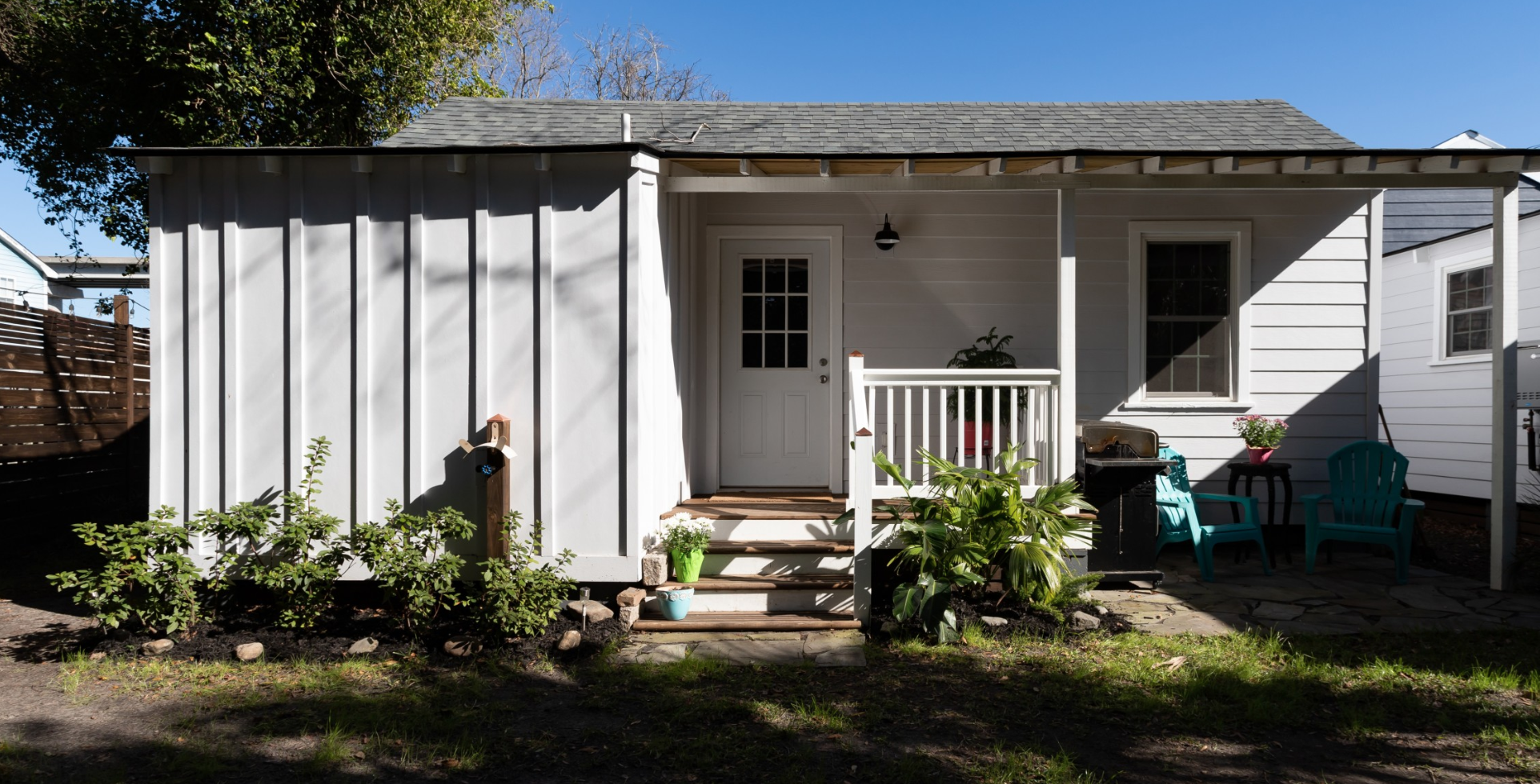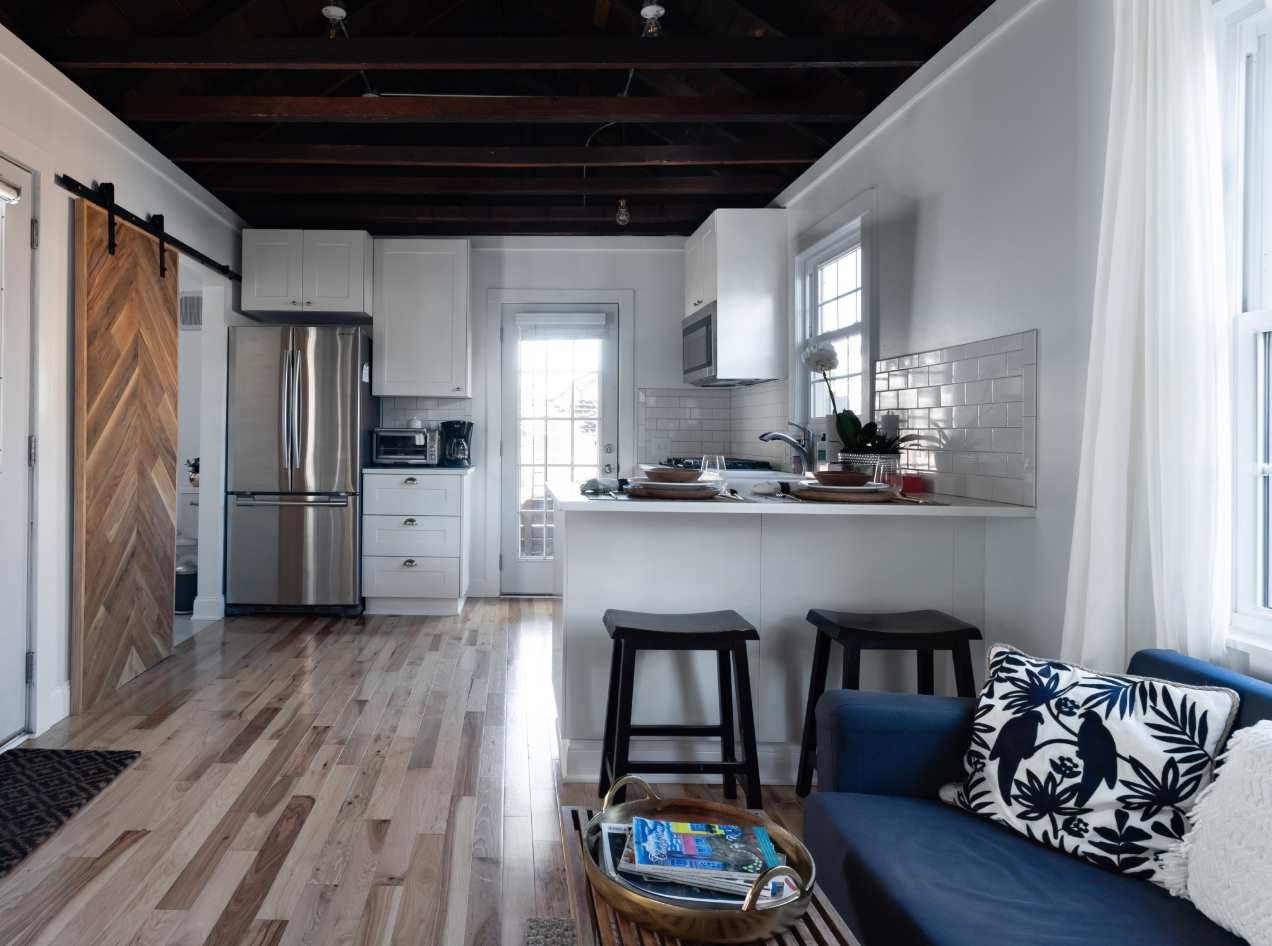Investing in Short Term Rentals
Have you been wondering whether an AirBnB property purchase is a solid investment? You’re not alone. We’ve started getting this question a lot and wanted to share our thoughts.
Airbnb and VRBO first surfaced in our city about five years ago. As Charleston continues to grow and attract more tourists (thanks to seven years running as the country’s #1 city), visitors are looking beyond traditional hotels for lodging. Renting a private home offers unique comfort and hospitality, often in a location where hotels aren’t otherwise found.
The short term rental market has offered Charleston homeowners a new opportunity to build income. Our friend and co-worker, Kyle Nichols, rents out the carriage house at his Wagener Terrace home on Airbnb. Kyle shares, “My favorite part of owning an Airbnb property is the freedom it gives me to have my living expenses covered, allowing me the opportunity to live and own downtown all while doing something I love: introducing visitors to Charleston!”
Of course it sounds easy and full of financial perks, but there are hidden costs and identifying a potential property is more challenging as regulations grow.
As the short term rental market took off in Charleston, neighbors complained of high turnover, after-hours noise, and overflow parking. Hotels and businesses complained that their new competitors weren’t subject to the same taxes. Homeowners associations and municipalities were asked to implement new regulations. Many HOAs opted to restrict short term rentals altogether. In popular neighborhoods without HOAs, like downtown’s Wagener Terrace and Mt. Pleasant’s Old Village, the regulations are dictated by the municipality.
The City of Charleston tackled the topic January 2018 by creating districts, each with their own regulations. All short term rental owners in Charleston must apply for a permit and business license. Depending on your district, rules on how many nights you can rent the property vary. Some districts require owners to prove the property is their primary residence for at least six months of the year. Inspections are required for fire safety and adequate parking is required. Additional information and a district map of the City of Charleston can be found on their website.
The Town of Mt. Pleasant just finalized their rules for short term rentals this summer. Unlike Charleston, Mt. Pleasant did not create districts but instead decided to limit the overall number of permits issued to 1% of the total number of dwelling units in the town. As of 2019, that allowed for about 400 total permits. The town also banned short term rentals in all apartments and condominiums. Like downtown Charleston, a parking requirement was established: one off-street parking space must be provided. As of July 31, 2019, 256 individuals had already applied for permits with the town. A full list of the Town of Mt. Pleasant rules along with new rules taking effect January 2020 can be found here.
You should also consider how the small and unexpected expenses add up. This was a surprise to Kyle who said, “It was surprising the amount of towels, linens, cups, etc that you go through. I am always adding more to the rotation. I think the biggest hidden cost is the amount of toilet paper!” You’ll be required to have additional insurance policies in place. Kyle also brought up hurricane season. He lost two weeks of reservations due to the hurricane Dorian evacuation, so he advises budgeting a reserve for this.
Another consideration is what renters expect from owners. Kyle provides everyday comforts like toiletries, phone chargers on each side of the bed, and quality internet, cable and streaming packages. Kyle even replaced the bedroom curtains with black out curtains after receiving feedback that the curtains let in too much sunlight. “It’s a lot about the little things that go a long way,” he adds. There are companies who can help you count the rolls of toilet paper and manage the tenant turnover if you prefer. Check out Stay Duvet https://stayduvet.com/.
We are constantly asked, “Is an Airbnb a good investment?” We don’t recommend purchasing a property for the sole purpose of short term rental because they are difficult to identify and we can’t guarantee it will always be permitted. Our client in Atlanta was only able to afford purchasing a Mariners Cay condo on Folly Beach because rental income would offset expenses. Now that Mariners Cay has banned short term rentals, they will be forced to sell the property unless they can absorb the cost on their own as a second home (or lose personal access by renting it to a long term tenant).
There are parts of town that haven’t yet placed restrictions on short term rentals, like Park Circle in North Charleston, but we caution against a purchase with that sole intention. We are confident the city of North Charleston will eventually follow suit with Charleston and Mt. Pleasant. If you already own a property with Airbnb potential (like a guest house, AUD, or mother-in-law suite) you likely have better opportunity for cash flow within your area’s guidelines. As with any investment, consider your risk. To limit risk, make sure the property has solid appreciation potential would appeal as a long term rental. That way you can always fall back on appreciation and a long term renter if the short term market shifts. As always, we are here to help guide you to making the right real estate move!
For more on short term rentals check out B.V.’s article.






